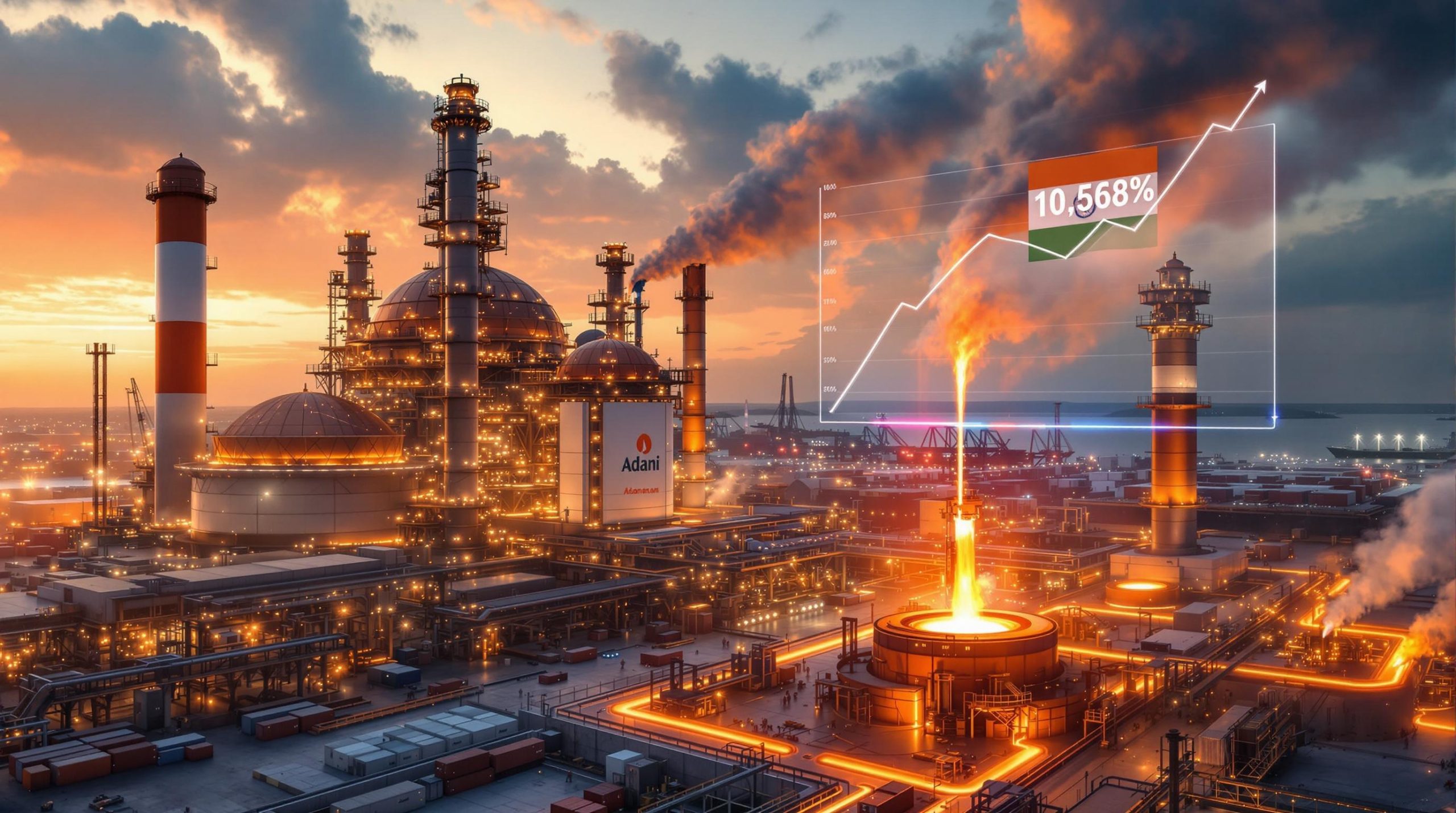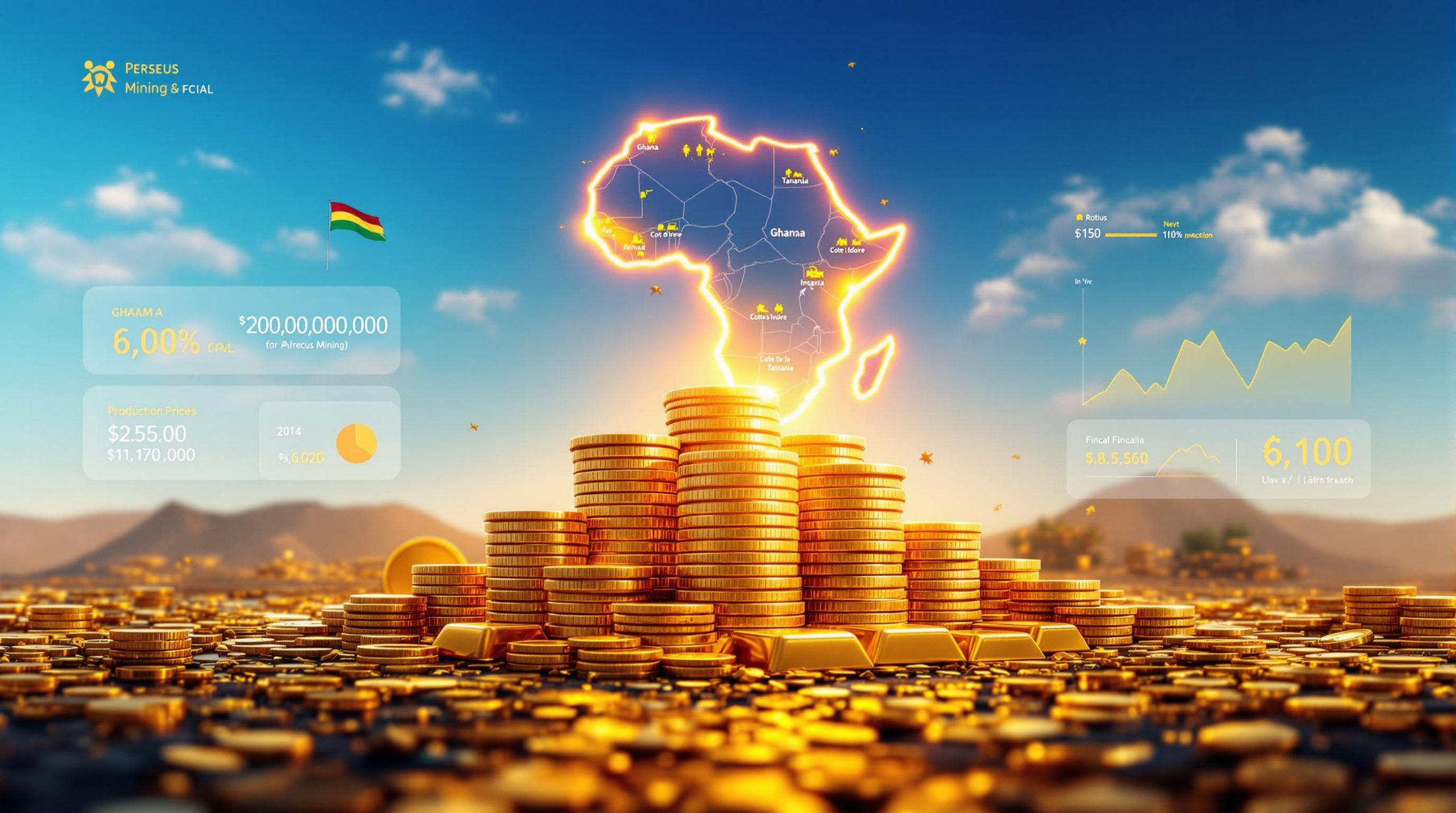Understanding Guinea's Bauxite Mine Nationalization: Implications for Global Aluminum Supply
In a significant move that has sent ripples through the global aluminum industry, Guinea's military government has officially terminated its mining agreement termination with Emirates Global Aluminium's (EGA) local subsidiary. This development marks a pivotal shift in Guinea's approach to managing its vast mineral resources and signals broader implications for international mining companies operating in West Africa.
The Government Takeover
Guinea's military government officially terminated the mining agreement with Emirates Global Aluminium's local subsidiary, Guinea Alumina Corp (GAC), in July 2025. The decision came after months of tensions between the government and the company over unfulfilled development commitments.
The government swiftly transferred the bauxite mining lease to a newly established state-owned entity called Nimba Mining Company. According to official statements, this new concession will operate under a renewable 25-year lease, covering both bauxite extraction and refinery operations.
Mining and Geology Minister Bouna Sylla explicitly confirmed that "the company lost mining rights for breaching the mining code and agreements," highlighting the government's commitment to enforcing the terms of mining contracts.
Timeline of Events Leading to Seizure
The path to nationalization began in October 2024 when bauxite exports from GAC's operation were initially suspended by Guinean authorities. This suspension created immediate disruption in the supply chain, with exports dropping dramatically from 14 million tons to 10.8 million tons in the year following the suspension.
The GAC operation itself had faced challenges from the beginning. Production at the northwestern mining site began in 2019, almost two years behind the original schedule, creating early tensions with government officials who had expected more timely development.
Between October 2024 and July 2025, negotiations between EGA and the Guinean government apparently failed to resolve the underlying issues, ultimately leading to the complete termination of the mining agreement and the transfer of assets to state control.
Why Did Guinea Seize the Bauxite Mine?
Unfulfilled Refinery Commitments
The primary reason cited by Guinean authorities for the takeover was GAC's failure to meet pledges to construct an alumina refinery in the country. This commitment was not a minor detail but a cornerstone of the original agreement between the government and EGA.
The original deadline for refinery completion was set for 2022, but the company had failed to meet this timeline. Despite receiving an extension to September 2026, the government determined that progress was insufficient and that the company was unlikely to fulfill its obligations even with the extended timeline.
This failure represents a critical issue for Guinea. Converting bauxite to alumina within the country would dramatically increase the value captured from mineral extraction, creating more jobs and generating higher tax revenues. The refinery was seen as essential to Guinea's industrial development strategy rather than merely an optional add-on.
Strategic Resource Nationalism
The seizure reflects a broader trend across mineral-rich West African nations to increase state control over natural resources. Bloomberg News accurately characterized the move as part of a pattern where governments, "particularly those under military leadership, [seek] to increase profit shares from joint ventures and tighten control over mining assets."
Military-led governments in the region have been particularly assertive in renegotiating mining agreements and enforcing development commitments. This approach stems from a growing recognition that historical mining agreements often favored international companies at the expense of host nations.
The move aims to capture more value from mineral resources by enforcing in-country processing requirements. Rather than merely exporting raw materials, Guinea intends to develop processing capacity that creates more jobs and generates greater economic benefits domestically.
What is Guinea's Position in the Global Bauxite Market?
World's Leading Producer
Guinea has established itself as the world's largest bauxite producer, making this government action particularly significant for global aluminum markets. The country possesses vast reserves of high-quality bauxite, the essential raw material that is refined into alumina before being smelted into aluminum metal.
Guinea's bauxite is considered among the highest quality globally, with favorable chemical compositions that make it particularly valuable for aluminum production. The country's reserves are estimated to exceed 7.4 billion tons, representing about one-third of the world's known bauxite resources.
The country's mining industry evolution has expanded rapidly over the past decade, with production increasing from approximately 35 million tons in 2015 to over 80 million tons by 2024, demonstrating its growing importance in global supply chains.
Economic Importance
Bauxite mining represents a significant portion of Guinea's export revenue and GDP, accounting for nearly 40% of the country's export earnings. This economic concentration has created both opportunities and vulnerabilities for the nation's development.
The country has been working to leverage its mineral wealth to drive broader economic development through infrastructure improvements, job creation, and industrial diversification. However, the export of unprocessed bauxite captures only a fraction of the potential value compared to processed aluminum products.
In-country processing (refining bauxite to alumina) would significantly increase the value captured domestically. Alumina typically sells for 3-4 times the price of raw bauxite, creating a strong economic incentive for Guinea to develop refining capacity rather than continuing as merely a supplier of raw materials.
What Are the Implications for Global Aluminum Supply Chains?
Potential Supply Disruptions
The GAC operation previously contributed approximately 14 million tons of bauxite annually to global markets, representing a significant supply source for aluminum producers. The export suspension and subsequent nationalization could create short-term supply constraints as the new state-owned entity establishes operational protocols.
Aluminum producers reliant on Guinean bauxite may need to secure alternative sources quickly. Major aluminum-producing countries like China, which imports significant quantities of Guinean bauxite, could face particular challenges in replacing these supplies in the short term.
The uncertainty surrounding the new operating model under Nimba Mining Company could further complicate supply forecasts. Questions remain about whether the new entity will maintain existing customer relationships or pursue new strategic partnerships.
Industry Response
Major aluminum producers will likely accelerate efforts to diversify bauxite sourcing in response to this development. Countries like Australia, Brazil, and Jamaica may see increased interest from aluminum producers seeking more politically stable supply sources.
Companies may become more cautious about future investments in Guinea without stronger guarantees regarding contract enforcement and political stability. Future mining agreements will likely include more detailed provisions regarding development commitments and clearer consequences for delays.
The development could drive up bauxite prices if supply disruptions persist, potentially increasing costs throughout the aluminum value chain. This price pressure could be particularly significant if other major producers cannot quickly increase output to compensate for any shortfall from Guinea.
Precedent for Other Mining Operations
The seizure sets a precedent that could affect other international mining companies operating in Guinea. Several major mining companies, including Rio Tinto and Alcoa, maintain significant operations in the country and will be closely monitoring how the situation unfolds.
Companies with outstanding commitments to build processing facilities face increased scrutiny and pressure to accelerate development timelines. The government's willingness to take decisive action against GAC demonstrates that development commitments will be treated as binding obligations rather than aspirational goals.
The action signals Guinea's determination to enforce local value-addition requirements across its mining sector. Other companies may preemptively accelerate their development plans to avoid similar hostile takeover strategies.
How Does This Fit Into Regional Resource Nationalism Trends?
West African Context
Similar resource nationalism movements have emerged across West Africa in recent years, with countries like Mali, Burkina Faso, and Niger all taking steps to increase state control over mining assets. These actions reflect growing dissatisfaction with traditional extractive industry models that export raw materials with minimal in-country processing.
Military governments in the region have been particularly assertive in renegotiating mining agreements. Following coups in several West African nations, new military-led governments have prioritized reviewing existing mining contracts to ensure they align with national development goals.
The trend reflects a fundamental shift in how African nations view their natural resources, moving from a focus on attracting foreign investment at any cost to ensuring that resource extraction generates meaningful economic development.
Changing Investment Climate
International mining companies face a more challenging investment environment in the region as governments become more assertive in enforcing development commitments. The era of simple extraction and export operations appears to be ending in favor of more integrated development models.
Requirements for local processing and value addition are becoming standard in new mining agreements across the region. Companies planning new projects must increasingly incorporate downstream processing facilities into their development plans to secure government approval.
Governments are increasingly willing to take strong measures to enforce these requirements, including contract termination and nationalization. This shift increases both political and operational risk for mining companies but may ultimately lead to more sustainable development models.
Balancing Development Goals
Guinea's actions reflect a desire to move beyond being merely a supplier of raw materials in global value chains. By establishing the Nimba Mining Company, the government signals its intent to build state capacity in the mining sector rather than relying exclusively on foreign operators.
The government aims to create more local jobs and capture greater value from natural resources through vertical integration. An alumina refinery would create hundreds of skilled positions and support the development of ancillary industries and services.
However, the government must balance these development ambitions with practical considerations about technical expertise, capital requirements, and market access. The success of the Nimba Mining Company will depend on its ability to maintain production levels while advancing refinery development plans.
FAQ: Guinea's Bauxite Mine Nationalization
What is bauxite and why is it important?
Bauxite is the primary ore used to produce aluminum. It consists mainly of aluminum hydroxide minerals with varying amounts of silica, iron oxide, and titanium dioxide. This ore must first be refined into alumina (aluminum oxide) before being smelted into aluminum metal through an electrolytic process.
As global demand for aluminum grows for use in construction, transportation, packaging, and renewable energy technologies, bauxite has become an increasingly strategic resource. Aluminum's lightweight, corrosion-resistant properties make it essential for everything from aircraft manufacturing to food packaging.
The production process is energy-intensive, making access to affordable, high-quality bauxite a critical competitive advantage for aluminum producers. Guinea's high-grade reserves have made it an increasingly important player in global aluminum supply chains.
Who is Emirates Global Aluminium?
Emirates Global Aluminium is one of the world's largest aluminum producers, based in the United Arab Emirates. The company operates major aluminum smelters in Abu Dhabi and Dubai, with a combined production capacity exceeding 2.5 million tonnes annually.
The company had expanded into bauxite mining in Guinea to secure raw material supplies for its operations, representing a strategic vertical integration to control more of its supply chain. This upstream expansion was part of a broader strategy to reduce dependency on third-party suppliers.
Before the nationalization, GAC represented a significant international investment in Guinea's mining sector and was viewed as a potential model for future projects combining resource extraction with industrial development.
What happens to existing contracts and customers?
The newly established Nimba Mining Company will likely review existing supply contracts established under GAC's management. Customers who previously received bauxite from the operation face uncertainty until the new management clarifies its export policies and customer relationships.
Major aluminum producers in China, Europe, and the Middle East who relied on GAC's bauxite may need to secure alternative supplies while the transition unfolds. This could temporarily disrupt established supply chains and potentially affect pricing in spot markets.
The Guinean government has indicated that it intends to honor legitimate business obligations, but specific details about contract continuity remain unclear. The transition period will be closely watched by both customers and industry analysts.
Could this action be reversed through international arbitration?
Emirates Global Aluminium may pursue international arbitration or other legal remedies to challenge the seizure. International investment treaties often provide mechanisms for companies to seek compensation when assets are expropriated by host governments.
However, such processes can be lengthy and outcomes uncertain, especially when governments cite breaches of development commitments as justification for their actions. The Guinean government's specific claims about unfulfilled refinery development obligations could complicate any legal challenge.
The success of any arbitration would likely depend on the specific terms of the original mining agreement, the evidence regarding development commitments, and the procedures followed during the nationalization process. Regardless of the legal outcome, rebuilding the business relationship would be challenging.
How might this affect future mining investments in Guinea?
International mining companies may become more cautious about investing in Guinea without stronger legal protections and clearer enforcement mechanisms. Future agreements will likely include more detailed provisions regarding development commitments and specific remedies for delays or non-compliance.
Companies considering investments in Guinea may demand higher returns to compensate for increased political risk, potentially reducing the government's leverage in negotiations. Some companies might choose to focus on other jurisdictions with more predictable regulatory environments.
However, Guinea's exceptional bauxite reserves will continue to attract interest despite these challenges. Companies may adapt by forming joint ventures with state entities or accepting more stringent local processing requirements upfront rather than risking future disputes.
The Path Forward for Guinea's Bauxite Industry
The nationalization of GAC's operations represents a critical juncture for Guinea's mining sector. How the government manages the transition to state ownership will determine whether this action advances or hinders the country's development goals.
For the action to succeed, the Nimba Mining Company must maintain production levels while advancing plans for an alumina refinery. This will require technical expertise, significant capital investment, and access to international markets—challenges that have historically been difficult for state-owned mining enterprises.
The international mining community will be watching closely to see whether Guinea can transform this assertive move into a successful model for mineral beneficiation opportunities or whether it will join a long list of nationalizations that failed to deliver on their economic promises. Furthermore, the long-term economic impact will depend on how effectively the government can implement bauxite project benefits while maintaining investor confidence in the region.
Looking for Early Insights on Major Mineral Discoveries?
Discovery Alert's proprietary Discovery IQ model instantly notifies investors about significant ASX mineral discoveries, providing actionable insights before the broader market. Explore why historic discoveries can generate substantial returns by visiting our dedicated discoveries page and begin your 30-day free trial today.




